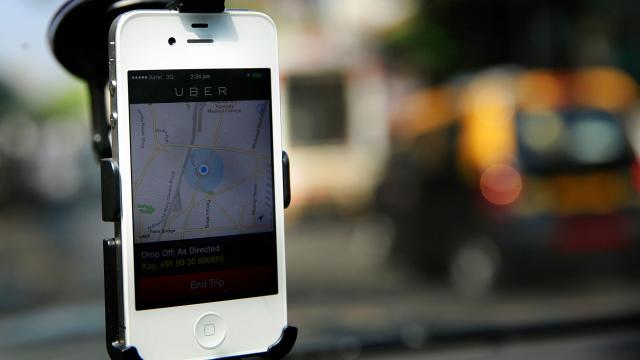In March, Uber abandoned its operations in eight countries in Southeast Asia with an announcement that it was selling everything it had in the region to competitor Grab. Per a Monday report in the New York Times, it now looks like this exit was anything but graceful, and has infuriated both regulators and drivers in the region who think Uber essentially flipped them the bird on its way out the door.
Per the Times, new CEO Dara Khosrowshahi was under pressure from investors to “reduce the company’s tremendous losses as he prepares it for an initial public offering of stock.” Yet regulators in some countries believe the Grab fire sale created an illegal monopoly, and Uber’s regional staff and drivers feel like the company screwed them over:
In Southeast Asia, though, the company made a cold-blooded calculation that regulators in eight countries had little power to stop it from exiting.
Uber presented the sale of its operations to Grab, its chief rival in the region, as a fait accompli. The Uber app was to shut down in two weeks, with customers told to download the Grab app and drivers encouraged to switch allegiances. Uber’s 500 employees in the region were immediately laid off with no clue whether Grab would offer them a job. And regulators were told there was no way the deal could be undone, even if they objected to Grab’s overwhelming dominance of the region’s ride-hailing market.
Selling the Southeast Asian division as well as another in Russia temporarily got the company $4 billion in the black for the first quarter of 2018, which is important when the company is preparing for the IPO and also haemorrhaging billions a year.
But according to the Times report, the Competition and Consumer Commission of Singapore claimed that Uber reneged on a deal to brief officials about the merger (Uber denies this) and later barred Grab from adjusting prices or payments “while it considered whether to reverse or modify the transaction.” In the Phillippines, Uber executive Brooks Entwistle responded to an order from antitrust regulators to not merge with Grab until the deal had been reviewed by saying that “our funding is gone” and “We don’t intend to come back to these markets.”
The Times added that Malaysia and Vietnam are also preparing their own antitrust investigations.
In an interview with the paper, Uber executive Barney Harford said that Uber’s 27.5 per cent share of the combined company was “obviously not a controlling position, so the management team of the controlling entity are now on point for handling the regulatory questions.” In other words, have fun cleaning up our mess.
Philippines antitrust officials say they have already determined Uber left the country’s ridehailing consumers at the mercy of a Grab monopoly that controls 93 per cent of the market, resulting in higher fees for worse service – so while Grab might be on top for now, it sure sounds like it could be left holding the bag if the antitrust investigations result in serious penalties. Per the South China Morning Post, competitors like Indonesia’s Go-Jek seem to believe Grab has bitten off more than it can chew and have announced plans to move into its markets.
